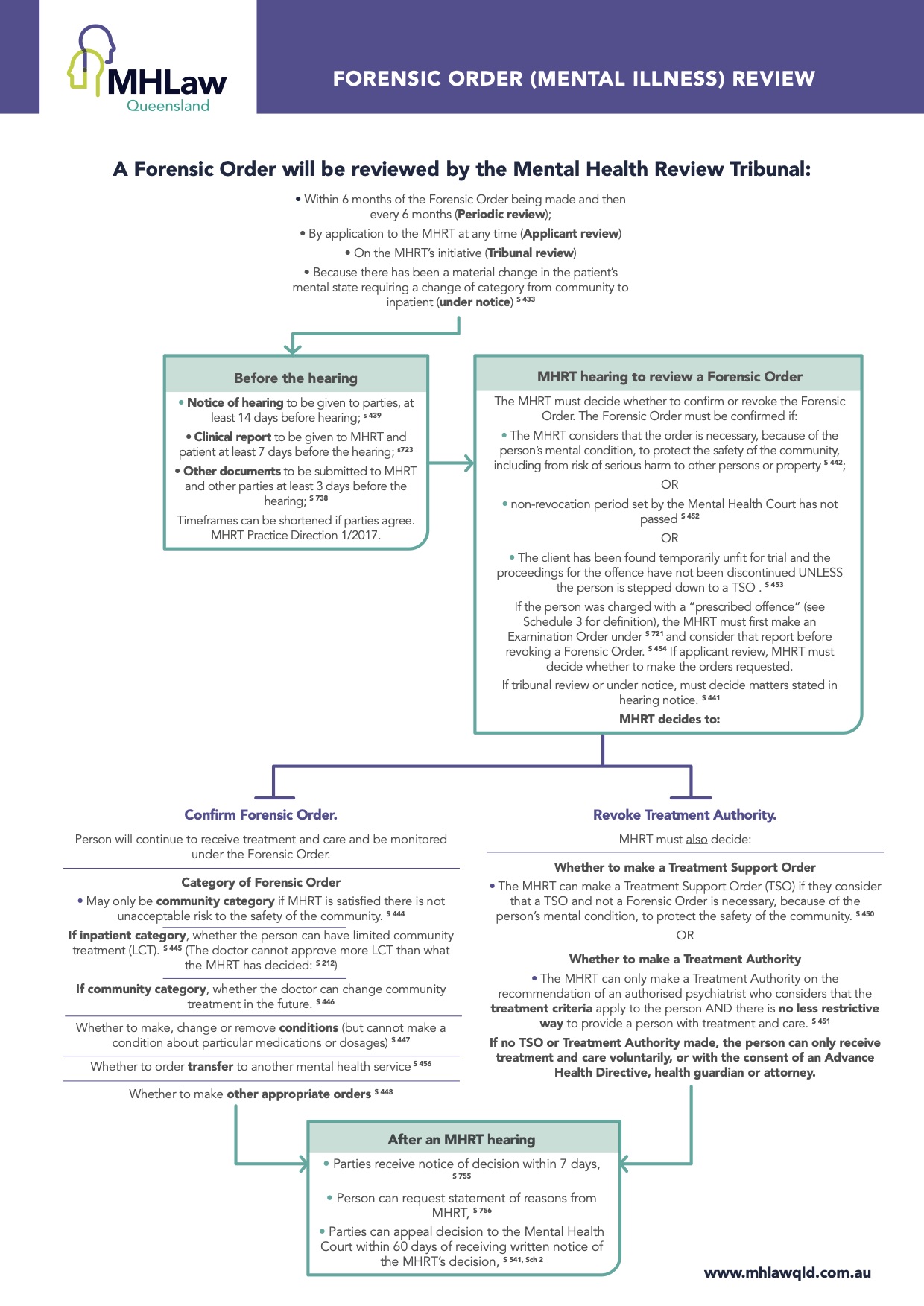See flowchart ‘Forensic Order (Disability) Review’ for reviews of forensic orders where the person has an intellectual or cognitive disability.
Matters the MHRT must have regard to:
- The “relevant circumstances” of the person subject to the order (that is, mental state and psychiatric history, any intellectual disability, social circumstances, response to and willingness to receive treatment and care, and the person’s response to previous treatment in the community)
- The nature of the relevant unlawful act and the period of time that has passed since the act happened;
- Any victim impact statement; and
- If the Mental Health Court made a recommendation about intervention programs, the person’s willingness to participate in the program if offered
S432, Sch 3 (“relevant circumstances”)
Attendance at Hearing
The patient is encouraged to, but does not have to attend the hearing.
- If 17 years old or under, the patient will be appointed a free legal representative, unless already represented or patient waives right to representation, S 740.
- If the Attorney-General elects to send a representative, the patient will be appointed a free legal representative, unless already represented or patient waives right to representation, S 740.
- Patient can bring a support person, S 739
- One or more members of the patient’s treating team must attend the hearing.
- Hearings can be attended in person, by phone or, if available, by videoconferencing.
Evidence Considered by MHRT
- Documents
- Clinical report
- Most recent decision from the MHRT
- Hearing notice
- Dossier prepared by MHRT (Mental Health Court order, and other relevant documents including the decision or transcript from the Mental Health Court and any reports)
- If applicant review— application form
- Any other documents submitted by doctor applicant or patient (including patient self-report)
- Oral information given by people attending the hearing.
Treatment Criteria
The person has a mental illness;
- The person does not have capacity to consent to be treated for the illness (capacity must be stable, S 421(2))
- Because of the illness, absence of involuntary treatment is likely to result in:
- Imminent serious harm to the person or others; or
- The person suffering serious mental or physical deterioration
The MHRT must not conduct a review of the Forensic Order if there is a current appeal to the Mental Health Court about the Forensic Order and the MHRT’s decision has been stayed S 436
Parties to Review
- The patient,
- The person who applied for the review (if there is one),
- The administrator of the authorised mental health service and Chief Psychiatrist
- The Attorney-General S 736, 439
Treatment Support Order
If a TSO is made, then a person is required to be under the supervision, and be provided treatment and care by, an authorised psychiatrist. However, if a TSO is made:
- Reviews by a psychiatrist may become less frequent
- The Attorney-General is no longer party to the proceedings
- The TSO must be community category unless the MHRT considers the person’s treatment and care needs; safety and welfare, or safety of others cannot be reasonably met if a community patient S 475
Unless otherwise specified, references to sections(s) are from the Mental Health Act 2016 (Qld)







